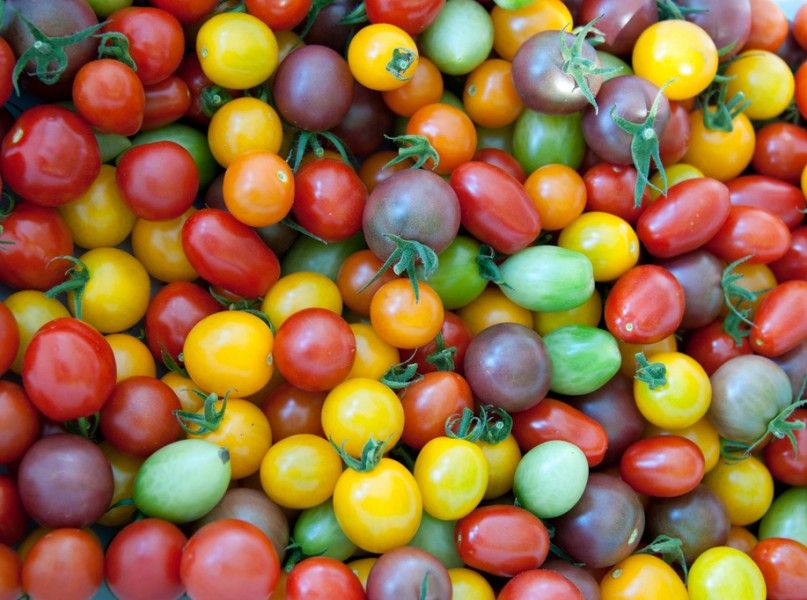Imagine, city dwellers: you’d like some fresh produce for tonight’s dinner. You can’t wait for the weekly farmers market, and you don’t want to pay the exorbitant prices for the organic local produce sold in the nearest chain grocery store. Wouldn’t it be nice if there were a farm nestled between the post office and Starbucks down the street, where you could see the produce grown and get exactly what you wanted the same day it was picked? Well, if you live in San Diego, that will soon be possible.
Home Town Farms is a San Diego, CA-based company bringing a certified organic, hydro-organic vertical farm to a city or suburban area near you. Boasting competitive produce prices, better nutritional values, and a more sustainable system, Home Town Farms is adopting age-old farming practices from around the world to integrate them into vertical farms.
“We’re all consumers,” said Home Town Farms CEO Dan Gibbs, a California native and 35-year resident of San Diego. “How often do you sit there wondering, is this really what they say it is? You just don’t know anymore. Here at Home Town Farms you get to see it, it’s there.Great nutrition is no longer just for the elite.”
With 30 years of experience as an entrepreneur, CEO, and businessman, Gibbs began seeing the realities of a broken system while working as a consultant in the nutrition and renewable energy fields. “During that 3 year process, I started to see the problems of what was going on,” he said. “The whole system is just broken.”
About 5 years ago, Gibbs and Michael Castro COO founded Home Town Farms. With 30 years experience in greenhouse vertical growing systems in both conventional and organic farms, Castro has extensive ag experience in United States, Mexico, South America, and the Dominican Republic, and was the perfect compliment to Gibbs’s business management and entrepreneurial background. Now, with the support of an impressive advisory board that includes the likes of Bruce Peterson, a 39-year veteran of the produce industry and Ex-Senior Vice President of Perishables (including Produce) for Wal-Mart Stores, Inc.
“Currently in America the people who need the most nutritious food are the ones that cannot afford it,” said Gibbs. “We can talk about improving the health of our country but until nutritious fresh produce is offered at prices that most everyone can afford, it will only be talk.”
One of the biggest problems Gibbs and Castro are hoping to address is the lack of nutrition in most produce today. Larger conventional farms often pick produce about 2 to 3 weeks early so the fruits and veggies are the right color and manageable consistency by the time they get to the retailer. But, the plant gives the fruits and veggies most of the nutrients in the last week. UC Davis research says that anywhere between 35 and 75 percent of nutrients are lost within the first week of picking. In short, that means not only is much of the produce bought commercially unsustainable, but also innutritious.
“You’ve got all the calories, without all the nutrients and we wonder why there are so many health problems,” Gibbs said.
Not only is the produce more nutritious, but also there are more varieties offered. On average, commercial farms provide just a handful of choices forcing them to distribute their produce longer distances. Home Town Farms aims to bring the community a variety of about 20 types of fruits and veggies, and save the environment while doing it. With 85 percent less water, 90 percent less fuel, 90 percent smaller carbon fuel footprint, 80 percent less fertilizer, and 70 percent less land required for the vertical farm, Home Town Farms cuts the cost and ups the value. Gibbs says that land and water in urban farms are undoubtedly more expensive in the city, but that the integration of retail storefronts and direct to consumer sales, cutting out the extra waste actually makes for a very profitable business.
Home Town Farms isn’t the only company taking a look at the vertical farming opportunities. BrightFarms, a company that raised $4.9 million in February, has also taken on urban farming. Gibbs admires the company, but says that Home Town Farms has a unique advantage. “One of our main competitors is Bright Farms—they’re really rocking it, and selling the food directly to grocery stores. It’s a great model,” he said. “But I believe in building a brand and going into individual community so people can share in the savings…We’ve used existing tech that has proven track record. We went to the manufacturers, and have scaled everything down.”
The technology used is predominately Israeli, Dutch and Spanish systems, all which have been used for decades all over the world including the United States. But now, Home Town Farms is taking this technology, scaling it down for one to three acre farms in City and Suburban areas, and integrating the technology in a way not seen before. For example, the tomato system used runs vertically, taking up about 10 square inches of space per plant but producing anywhere from 40 to 60 pounds of tomatoes. On just one acre, the urban farm produces about half a million pounds of produce per year, while a traditional farmer yields about forty thousand pounds in the same space.
“Out of every dollar you spend on produce, approximately 12 cents goes to the farmer,” said Gibbs. “About 58 cents goes to all the people between the farmer and the retailer, and the last 30 cents go to the retailer. But because we’re distributing in a 10-mile radius, we’ve calculated that with our delivery truck, gas and delivery person, we can deliver for about 10 cents a pound. We’re drastically cutting into that inefficiency and is part of the reason why we can offer lower prices.”
With land leased, State and City approvals and equipment purchased, Home Town Farms is hoping to finishing a round of funding this year and have its first farm up and running in San Diego by the first of 2015.
FEATURED PHOTO: Dwight Sipler/Flickr





